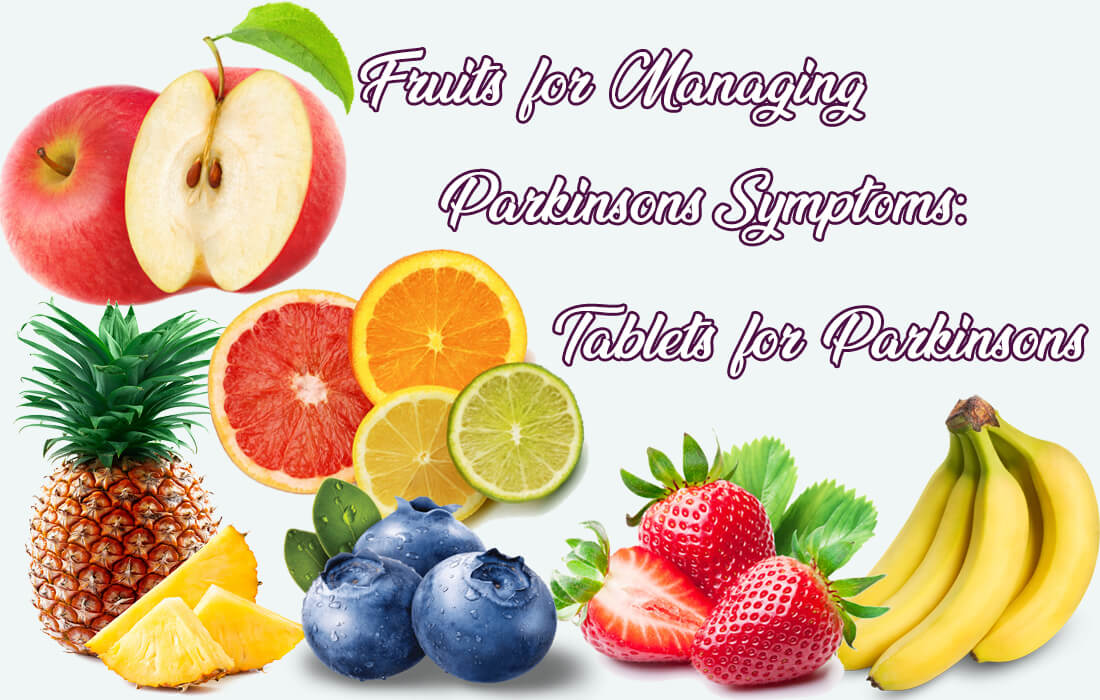Parkinson’s disease is a gradually advancing neurological disorder that impacts a substantial number of individuals. There are various ways to manage its symptoms and improve the quality of life for those with the condition. One such approach is through a healthy diet; tablets for Parkinsons and fruits can play a crucial role. Within this article, we will examine how including specific fruits in your diet can be beneficial in the management of Parkinson’s symptoms.
6 Fruits for Parkinson’s Symptom Management
Bananas:
- Bananas are a fantastic fruit choice for individuals with Parkinson’s disease. The presence of potassium in them contributes to the maintenance of healthy blood pressure.
- People with Parkinson’s often experience fluctuations in blood pressure, which can exacerbate symptoms.
- Regularly consuming bananas can help stabilize blood pressure and reduce the risk of dizziness and fainting.
- Additionally, bananas are rich in vitamin B6, a crucial component for maintaining nerve function. Parkinson’s disease primarily affects the nervous system, and adequate intake of vitamin B6 can help support nerve health and function, potentially mitigating some of the symptoms associated with the condition.
Blueberries:
- Blueberries are often called “superfoods” due to their high antioxidant content.
- Antioxidants are essential for shielding the brain from oxidative stress, a factor thought to play a role in the onset and advancement of Parkinson’s disease.
- You can potentially decelerate the degenerative process related to Parkinson’s by integrating blueberries into your diet, thus helping combat oxidative stress.
- Furthermore, blueberries are rich in flavonoids, which are linked to improved cognitive function.
- Cognitive dysfunction is a frequently encountered non-motor symptom in individuals with Parkinson’s disease, and consuming blueberries may help support brain health and maintain cognitive abilities.
Apples:
- Apples are a readily available and affordable fruit that can benefit individuals with Parkinson’s disease. They are a good source of fibre, which can help regulate digestive function.
- Many people with Parkinson’s may experience gastrointestinal issues, such as constipation, which can be uncomfortable.
- Regularly eating apples can promote healthy digestion and assist in parkinson’s disease symptoms treatment.
- Moreover, apples contain quercetin, a flavonoid that has anti-inflammatory properties.
- In Parkinson’s disease, the role of inflammation in both its inception and advancement is a subject of ongoing investigation. Including apples in your diet can help reduce inflammation and ease some associated symptoms.
Citrus Fruits:
- Citrus fruits like oranges, lemons, and grapefruits are rich in vitamin C, a powerful antioxidant.
- Vitamin C aids in shielding cells from oxidative harm and bolstering the immune system. For individuals with Parkinson’s disease, a strong immune system is essential for overall health.
- Additionally, vitamin C plays a role in synthesizing dopamine, a neurotransmitter deficient in Parkinson’s disease.
- While vitamin C alone cannot cure Parkinson’s, it can help support dopamine production and potentially alleviate some of the motor symptoms associated with it.
Strawberries:
- Strawberries are another excellent source of antioxidants and vitamin C. The intake of these delicious and juicy berries can effectively address the body’s oxidative stress and inflammation.
- Including strawberries in your diet can contribute to overall better health and may have a positive impact on Parkinson’s symptoms.
- Additionally, strawberries contain a significant amount of folate, a crucial B vitamin necessary for DNA and RNA production and maintenance.
- A folate deficiency has been tied to neurological disorders, and maintaining a sufficient intake of this vitamin can aid in promoting nerve function in people with Parkinson’s.
Pineapple:
- Pineapple, a tropical fruit, is rich in bromelain, an enzyme known for its anti-inflammatory properties.
- Inflammation serves as a common factor in chronic diseases such as Parkinson’s.
- Consuming pineapple or its juice can help reduce inflammation and relieve some discomfort associated with the condition.
- Additionally, pineapple is a good source of vitamins B6 and C, which can benefit individuals with Parkinson’s disease. These vitamins play essential roles in nerve health and immune system function.
- It’s crucial to remember that these fruits can offer advantages in managing Parkinson’s symptoms; they should be part of a balanced diet that includes a variety of foods.
Conclusion
Integrating specific fruits into your diet offers a straightforward and efficient method for alleviating the symptoms of Parkinson’s disease. These fruits provide a range of benefits, from stabilizing blood pressure and reducing inflammation to supporting nerve function and cognitive health. By making mindful dietary choices and including tablets for parkinson’s patients, you can proactively enhance your overall well-being while living with Parkinson’s.

